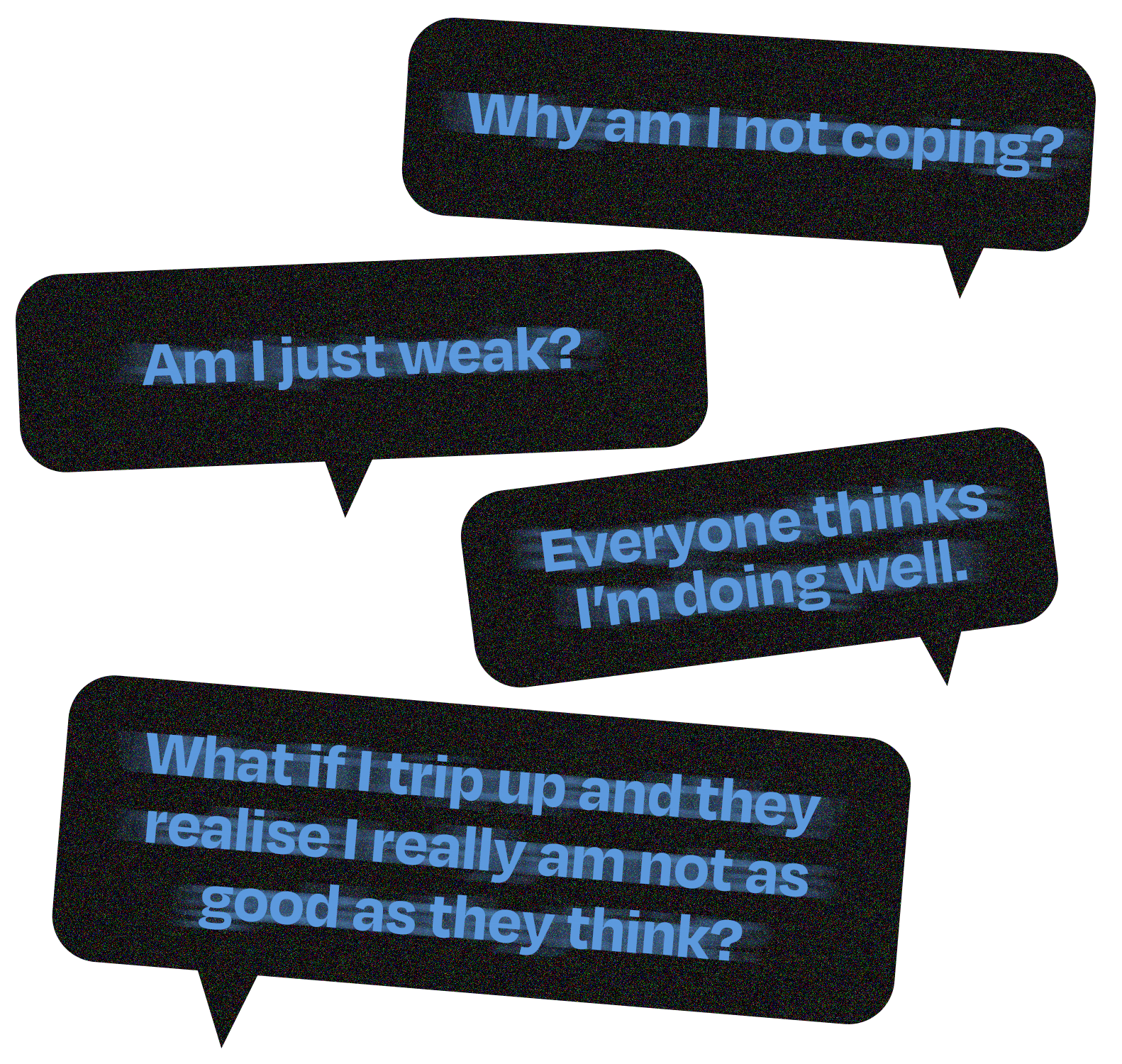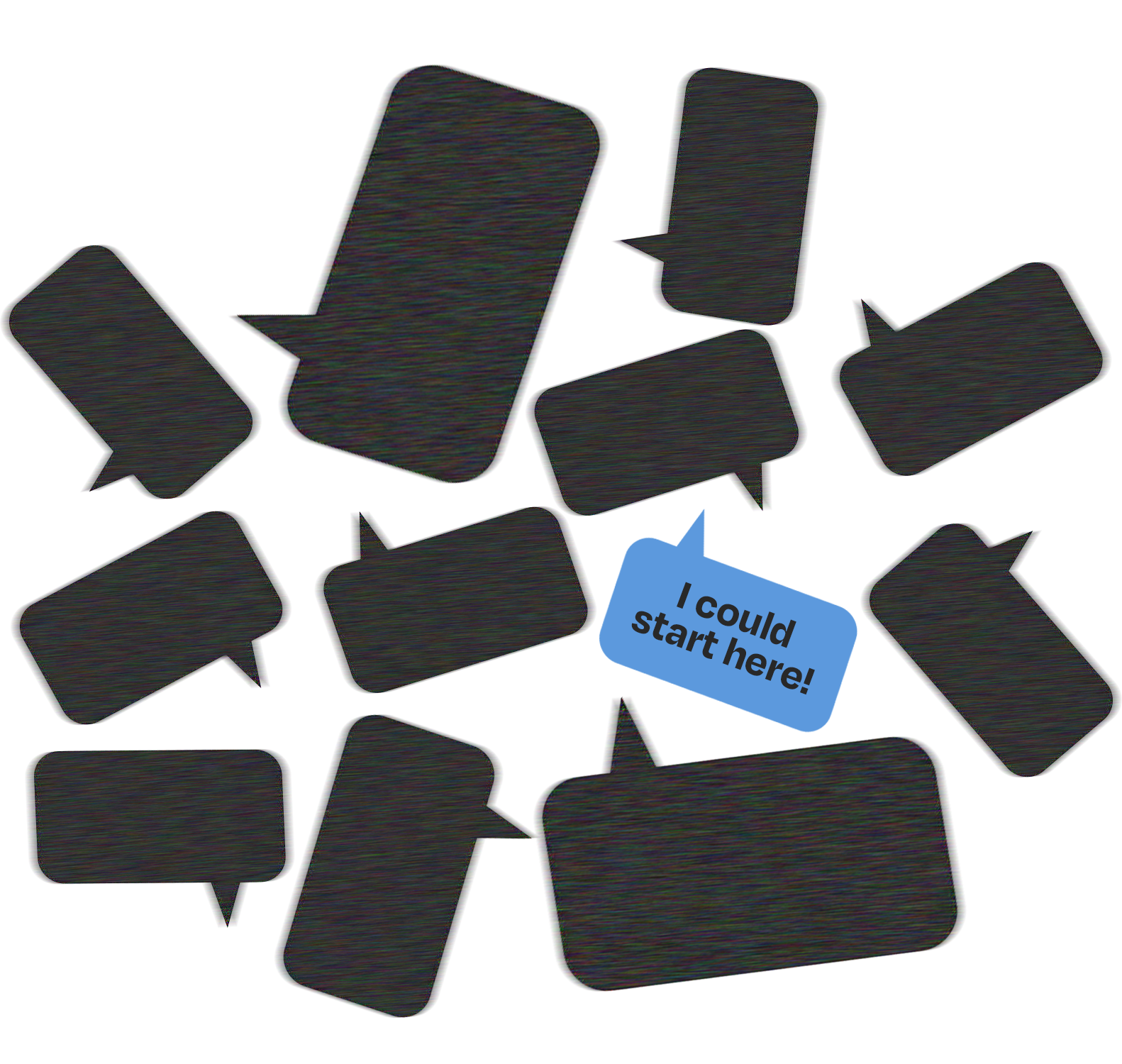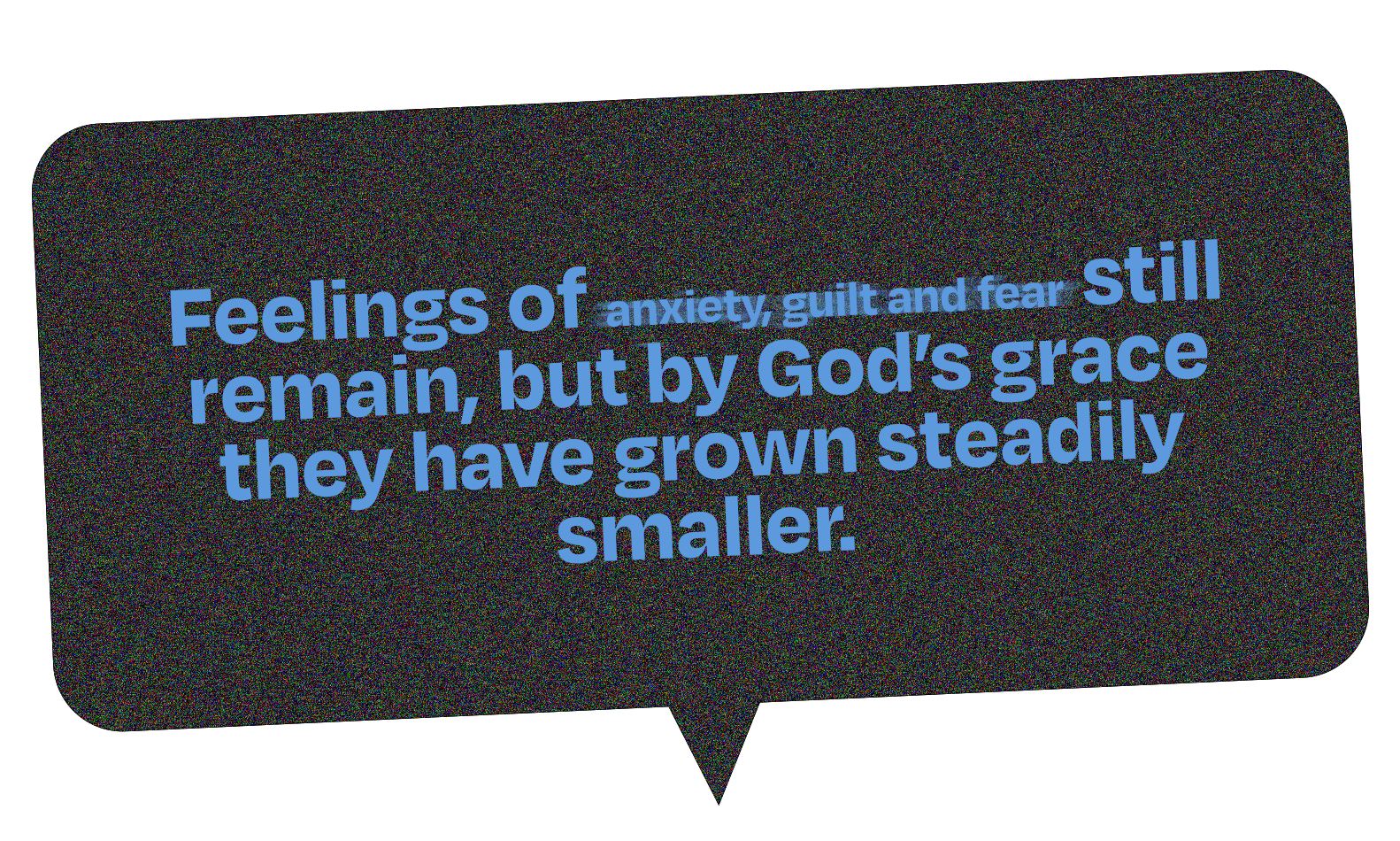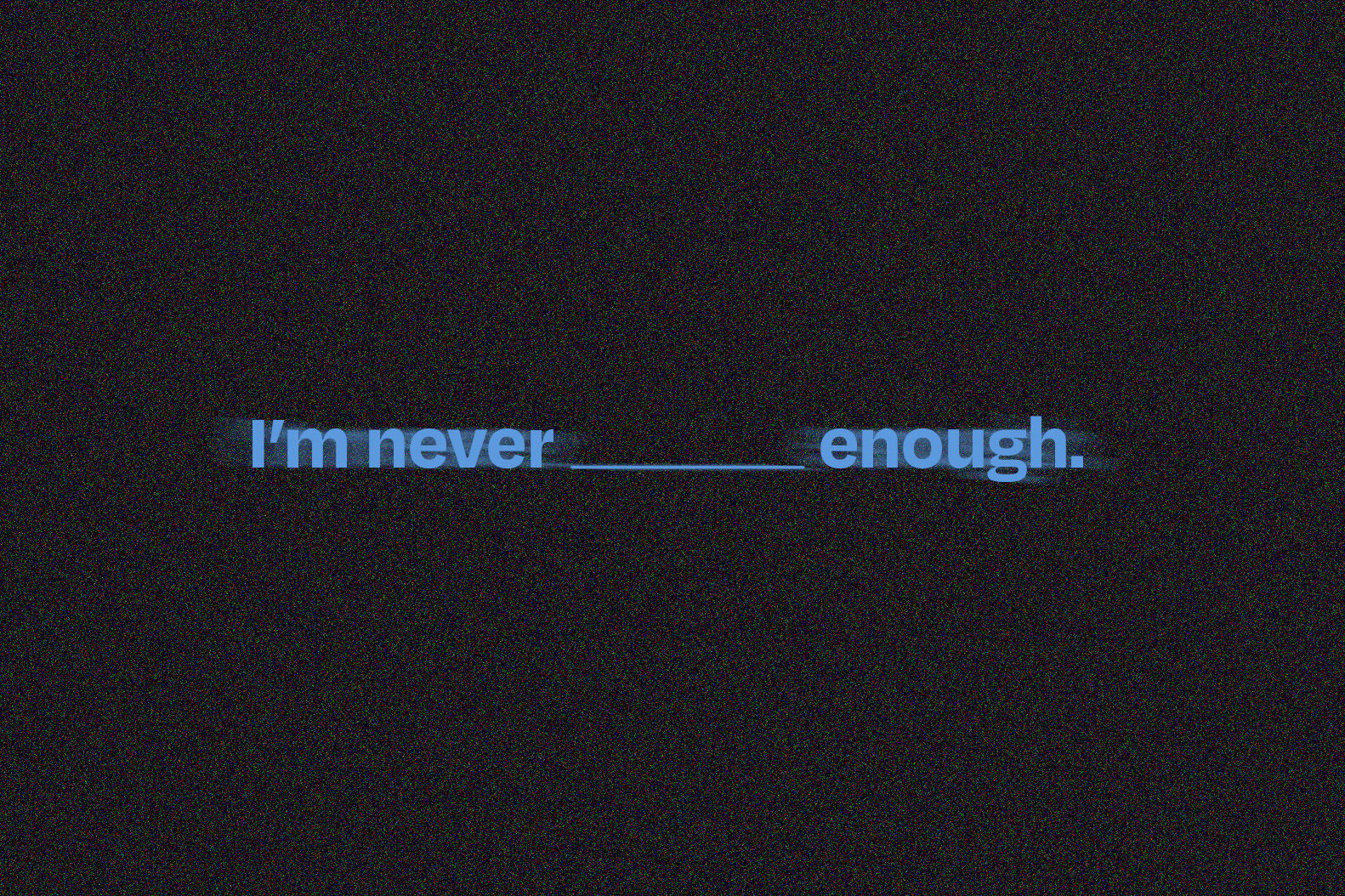Having studied in Australia for five years, jumping headfirst into work in Singapore was tough.
Towards the end of my work supervision, I began to feel strangely overwhelmed and crippled.
I felt that I could not handle everything on my own and just had this constant feeling that I was not doing a good enough job.
It did not help that the majority of my support network – my closest friends and church family – remained 6,302km away in Sydney.
But everywhere I looked, everyone else seemed to be coping.

These questions constantly crept into my mind, as my heart grew increasingly anxious.
In their kindness, my family and friends tried to reassure me. “You’re fine. Stop beating yourself up because your standards are too high,” they’d say.
While part of that might have been true, I felt they only said this based on what they thought they knew about me.
They had not seen my inadequacies — moments where I felt totally lost in managing difficult cases, where I struggled to be patient with my patients and had seen little to no progress in their skills.
So I wrestled with God, and felt like a fraud for months.
At its worst, I would take 45 minutes just to type a short email. It was then that I decided enough was enough – I needed help.
I felt the need to get a third party’s opinion, so I googled to seek help and decided to go for counselling sessions at Calvary Community Care (C3).
That’s where I met my counsellor, Peter. I learnt and grew so much from the sessions with him.
Peter was great at picking up the words that I used, like when I said I felt like a “fraud” or so “crippled”.
He would go: “I noticed that you used the word ‘crippled’. Let’s talk about that.”
His gentle yet probing questions shone light on thought patterns and beliefs I didn’t even realise I had.
We then worked through these together – slowly, but surely.

One of the most precious things I learnt from Peter is to focus on what you can do instead of what you cannot do.
We talked about the Parable of the Talents; many times, we look at other people’s load and we look at our load.
But I remember Peter saying, “This is your talent, just go and work with your talent. Don’t think about other things, just look after what you have.
“Instead of thinking about the big, big things that need to get done, just think about the next thing you need to do.”
These concrete steps helped shift my focus and instead of spiralling from the stress of all I cannot do, I began to focus on what I actually can do.
Focus on what you can do instead of what you cannot do.
Peter reminded me that God had put me where I was for a reason, that I was in a position to be a channel of blessing.
I had focused so much on my feelings of not being “good enough”, that I had lost sight of involving God in my work.
“Teresa, if you feel you are inadequate – sure,” said Peter. “It just means that any progress you see goes back to God.
“If God can still use you despite you not being ‘good enough’, then all you need to do is ask Him for help and just do what you can.
“He is responsible for the progress, and all glory goes back to Him.”
This marked a turn in how I saw my work, and how I saw myself.
“I can’t really handle this” and “I can’t manage this” slowly shifted to “God, help me do what I can!”
One of the lowest points at work came when I realised I no longer felt much for my patients.
When they did not arrive for their appointments, I was secretly relieved to have time to clear other work on my plate.
But I kept telling Peter: “I’m in a caregiving profession, I can’t – I have to care for my patients.”
I kept thinking of Matthew 14, where Jesus had compassion on the great multitudes of people. I was worried and scared. Where had my compassion for my patients gone?
Peter and I talked through this, about how feeling stressed and overwhelmed had likely contributed to my burnout.

My feelings were validated and normalised, as Peter helped me see that it’s okay to feel differently at different times since we have our seasons.
Knowing that feeling “nothing” is not something I should be guilty about, helped me walk towards desiring to care for my patients again.
The amazing thing is, my situation now is probably more stressful than at the beginning when I started going for counselling.
Do I still get very anxious? Yes. Do I still feel overwhelmed at times? Yes. But I now have more tools than I had before.
I also learnt that charting and recognising my progress helps me manage situations better.
I worried about making enough progress as a new clinician, so I was asked to rate my skills on a scale.
I rated where I thought my skills were when I first started, and where I felt I was now.
This helped me see how I had progressed, and that with time, I could expect to continue progressing. This gave me hope!
If you find yourself in a similar situation, perhaps you could try this out too.
Do it together with someone you trust, who can journey with you and encourage you.
Dear friend, it is my hope that my journey has encouraged you.
Feelings of anxiety, guilt and fear still remain, but by God’s grace they have grown steadily smaller.
Taking their place is peace, joy and hope.
So, friend, there is no shame in seeking help. Be strong and courageous.
*Teresa has requested to use a pseudonym for confidentiality. Having benefited from counselling, she hopes to let others know that it’s okay to get help.
Calvary Community Care (C3) started its counselling service in 2013. Recognising that one of the barriers to seeking help for youths (aged 12–25) is cost, counselling sessions are kept affordable at $50/session, or $5/session for those who require financial assistance. Supported by a team of experienced staff and volunteer counsellors, the waiting time for clients is currently around 1 week. More info can also be found on their website: calvary.sg.
- How do you cope when you feel overwhelmed?
- Speak to a trusted friend about the ways you manage stress and anxiety. Do they think it’s healthy or unhealthy?
- Based on this article, what is one practical step you can take this week towards a better state of mind?









